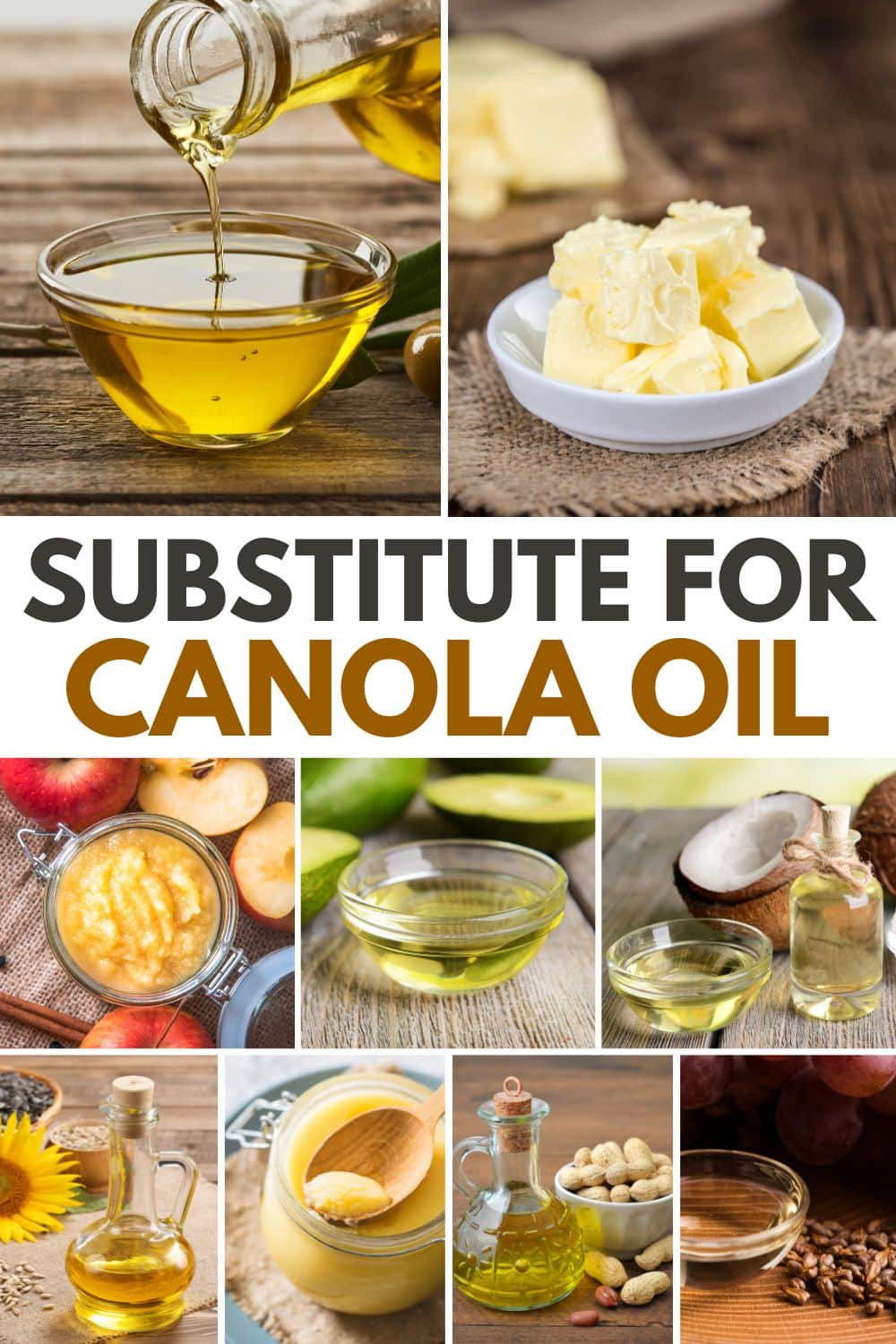Whether you’re looking for healthier options or oil substitutes to improve the flavor and aroma of a dish, you’ll find some of the best canola oil alternatives here.

Canola oil is a staple in many homemakers’ grocery shopping lists. It can be used in a wide array of recipes and cooking techniques. Yet, there’s always a chance of running out of it, even if it’s the most common cooking item.
Want to know the best alternatives when you don’t have canola oil at home or just want a healthier alternative? Keep reading to find out which oil substitutes will work perfectly for your cooking and baking recipes.
Jump to:
Should You Use Canola Oil Substitutes?
Canola oil is a great cooking oil because it’s affordable, easy to find, and versatile. It’s a popular neutral oil, which means it has little to no flavor that can alter the taste of a dish.

It has a high smoke point of between 400 to 475 degrees Fahrenheit, so you can use canola oil for high-heat cooking without worrying that it might taste bad or burnt in the process.
But there are good reasons to try a healthy alternative to canola oil, whether for cooking, baking, or preparing salad dressings.
Added Flavor and Aroma
Neutral oils are great because they won’t affect the blend of spices and other ingredients used in a recipe. But sometimes, you’d want to do the opposite and add another layer of flavor and aroma to a dish. In this case, you may opt for a more flavorful and aromatic cooking oil.
Improved Texture for Baked Goods
In baking, canola oil and other fats help prevent the overdevelopment of gluten, which could make baked goods tough to chew. With the right substitute for canola oil, you can also improve the flavor and texture of baked goods and desserts. Some alternatives can also make muffins and cupcakes more moist and fluffier.
Health Considerations
There were health concerns with using canola oil because of its erucic acid content, although experts later clarified that it is generally safe to use.
That said, there are plant-derived oils that are considered healthier than canola because of their fatty acid profile, vitamins, and antioxidant content.
Healthier Canola Oil Alternatives
Olive Oil
Olive oil offers more monounsaturated fatty acids than canola oil and is a good source of oleic acid. It’s also a far better source of antioxidants because it has vitamin E and a rich profile of phenolic compounds.
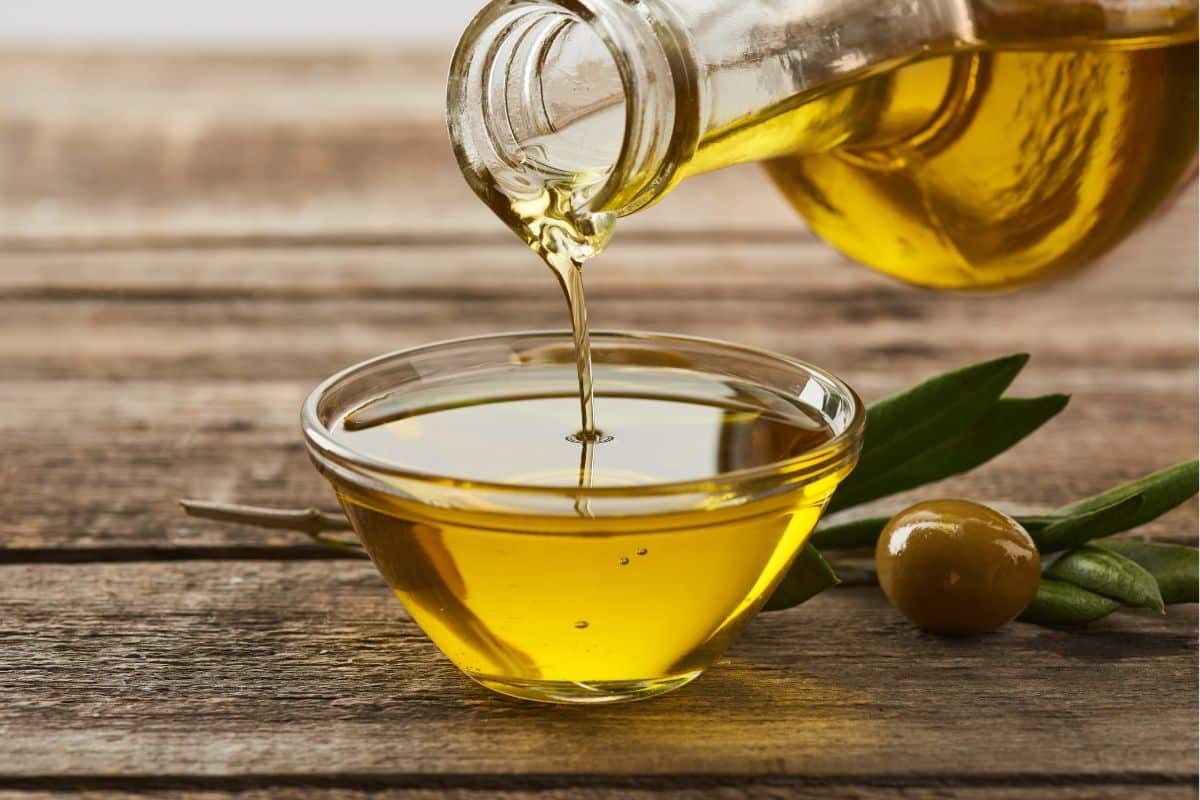
The flavor of olive oil is distinct, with a pleasant blend of grassy and peppery notes, so it’s best used in salad dressings and sauces.
You can also use it as a finishing oil by drizzling it over vegetable roasts and pasta dishes for added flavor, but its robust flavor may not go well with sweet baked goods.
Extra virgin olive oil’s smoke point is around 350°F. It can withstand medium-high cooking temperatures when sauteing or shallow frying but not for high-heat cooking.
Avocado Oil
Avocado oil can easily fulfill the limitations of olive oil in high-heat cooking because it boasts a very high smoke point of around 480°F (unrefined) and up to 520°F (refined).
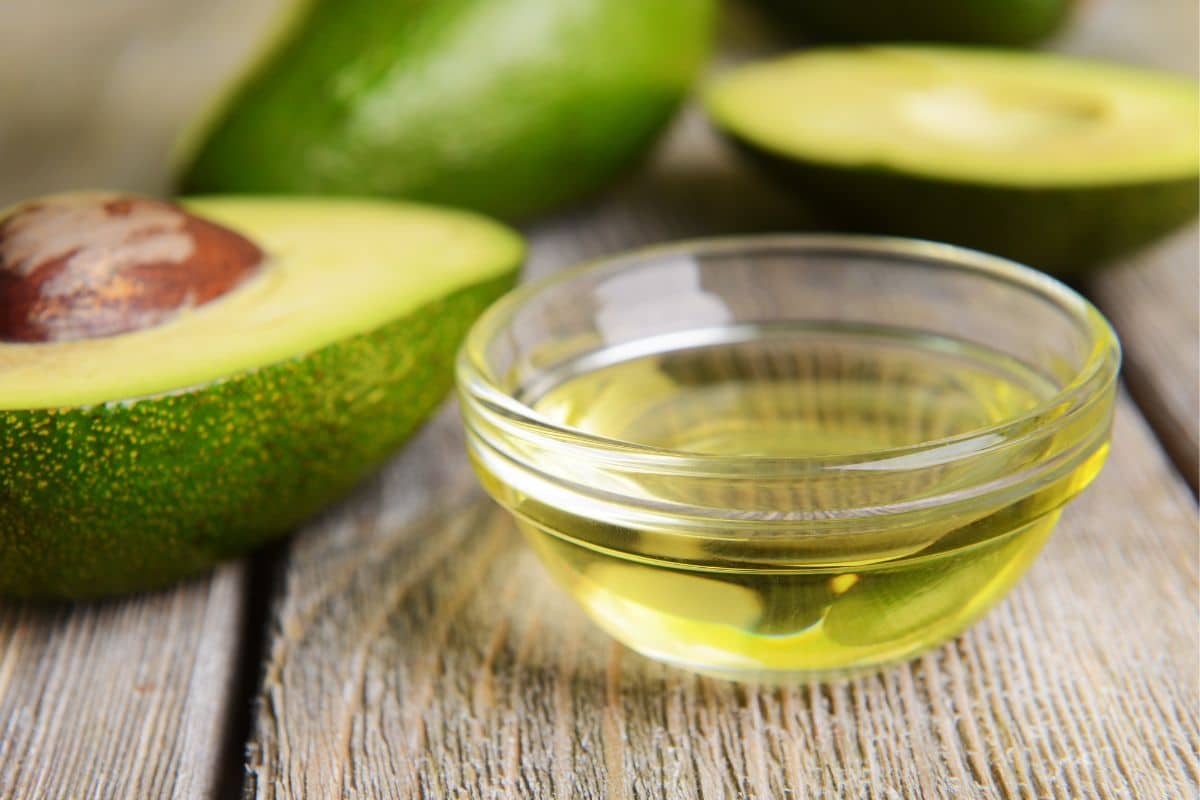
It’s made from pressed avocado pulp, which isn’t a neutral oil. Avocado oil has much milder, nutty, grassy flavors that won’t overpower a dish. With a high smoke point and mild flavor, it’s a fantastic canola oil alternative for baking, making sauces, and deep frying.
This should be on top of your list of healthy oils because it’s rich in monounsaturated fatty acids and a great source of vitamins, carotenoids, and antioxidants.
The only downside is avocado oil is much more expensive than most vegetable oils.
Coconut Oil
Coconut oil has a rather unique fatty acid profile mainly because of its high amounts of lauric acid that, in some studies, encouraged the increase of HDL, or good cholesterol.
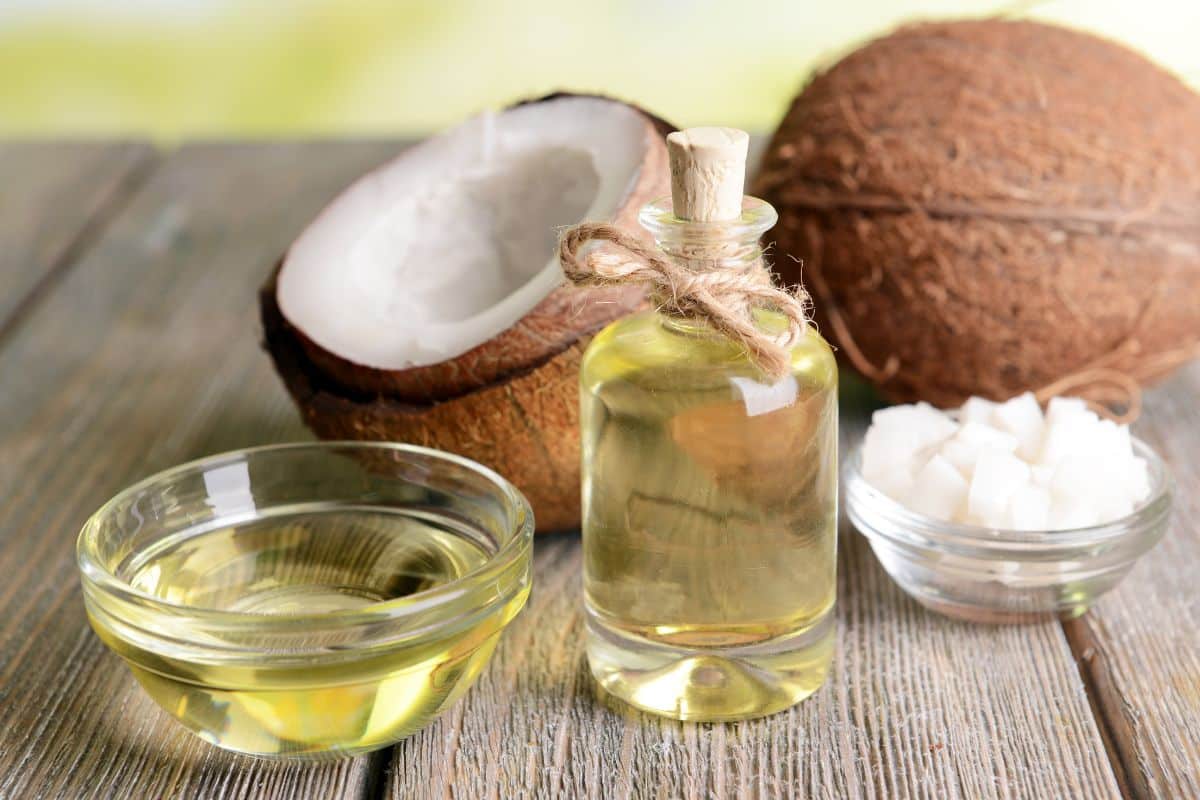
It’s mainly composed of saturated fats, which explains why it solidifies faster, which allows coconut oil to withstand higher cooking temperatures. Refined coconut oil has a smoke point of around 450ºF, so feel free to use it in high-heat cooking.
You may also opt for refined coconut oil if you need a neutral cooking oil. Replace canola oil with the same amount of coconut oil in baking recipes, especially when making muffins.
Sunflower Oil
Sunflower oil is a good source of vitamins E and K, as well as healthy fatty acids like omega-3 and omega-6. It’s one of the best canola oil alternatives you can use that may impart benefits for overall health.
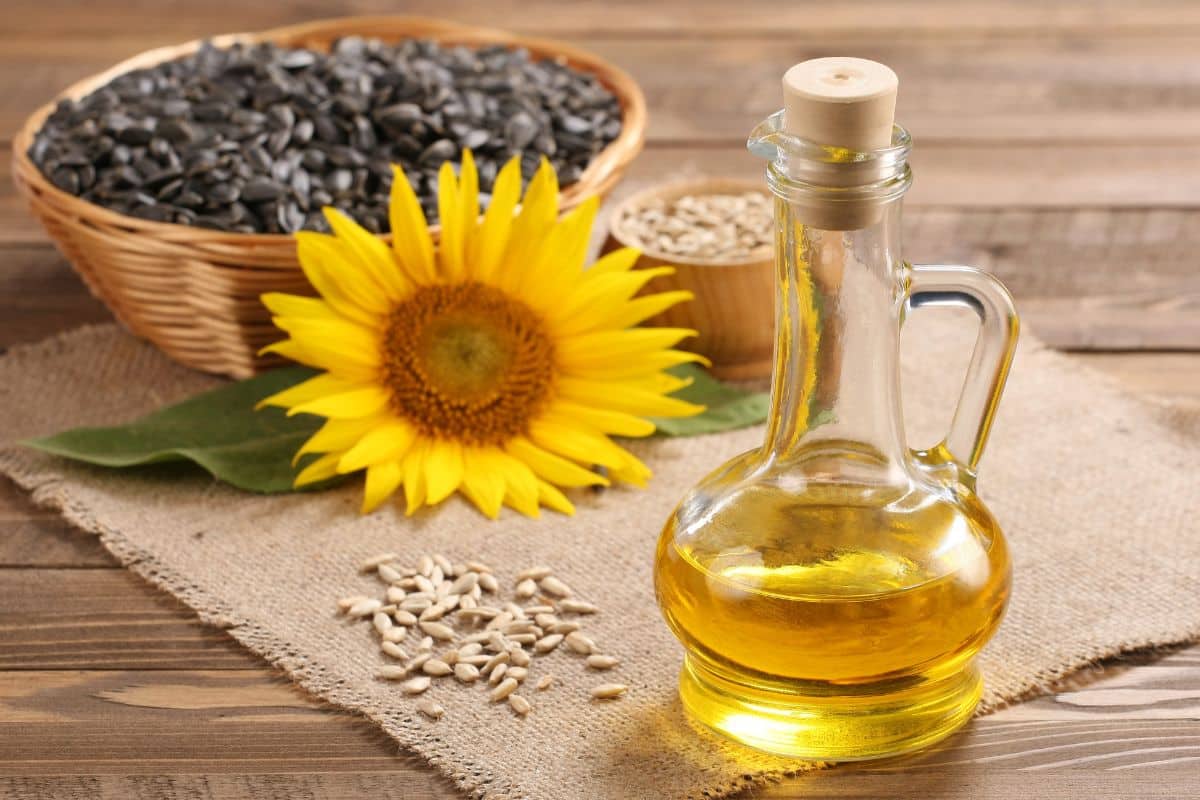
It’s also a fantastic item to always have in the kitchen because you can use it in just about any recipe that calls for canola oil, like this tasty Filipino Lumpia/Egg Rolls Recipe!
With a smoke point of 450ºF, feel free to use sunflower oil in baking and at any cooking temperature.
Best Canola Oil Substitutes for High Heat Cooking
Ghee
Ghee is one of the most common types of clarified butter, especially in Indian cuisines. By removing its milk solids and water content, you’re left with fats great for cooking and baking.
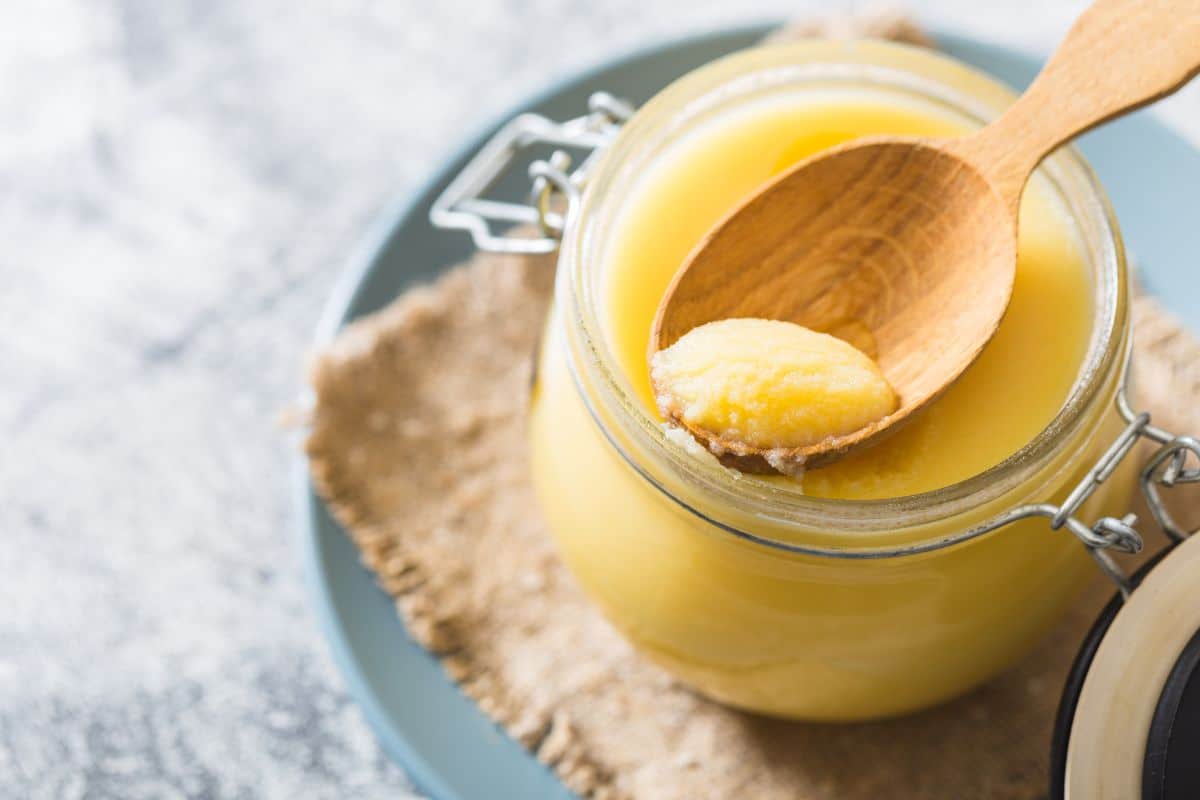
It has a rich, nutty flavor that can enhance the taste of most dishes. Ghee also boasts a high smoke point of between 450 to 485ºF. The next time you’re frying savory snacks and dishes, go ahead and give it a try!
Peanut Oil
Want to impart a light, nutty, sweet flavor to a dish? Consider using peanut oil to replace canola oil.

With a smoke point as high as 450ºF, peanut oil is a common alternative for any vegetable oil when it comes to frying and sauteing. Its mild taste also makes it suitable for baking if the recipe will benefit from the added nutty flavor.
Peanut oil will go well in sauces for Asian dishes and fried food. However, you’ll have to skip this if anyone in the family has peanut allergies.
Grapeseed Oil
Here’s another popular canola oil and vegetable oil substitute, particularly in high-heat frying. Grapeseed oil has a neutral flavor so it won’t change the outcome of a recipe. It also has a high smoke point at around 390 to 420ºF.

Grapeseed oil is an excellent addition to salad dressings and sauces to improve their texture.
It’s typically pricier than canola oil, but it’s worth having in the kitchen because it’s such a versatile cooking oil with a shelf life of between 6 to 12 months after opening.
Grapeseed oil is also one of your healthier alternative options and can be a source of vitamin E, polyunsaturated fatty acids, linoleic acid, and omega-6.
Great Alternatives for Canola Oil in Baking
Butter
Butter isn’t necessarily a healthier substitute for canola oil, but the flavor it can add makes it a good alternative for vegetable oils in baking cupcakes and other desserts.
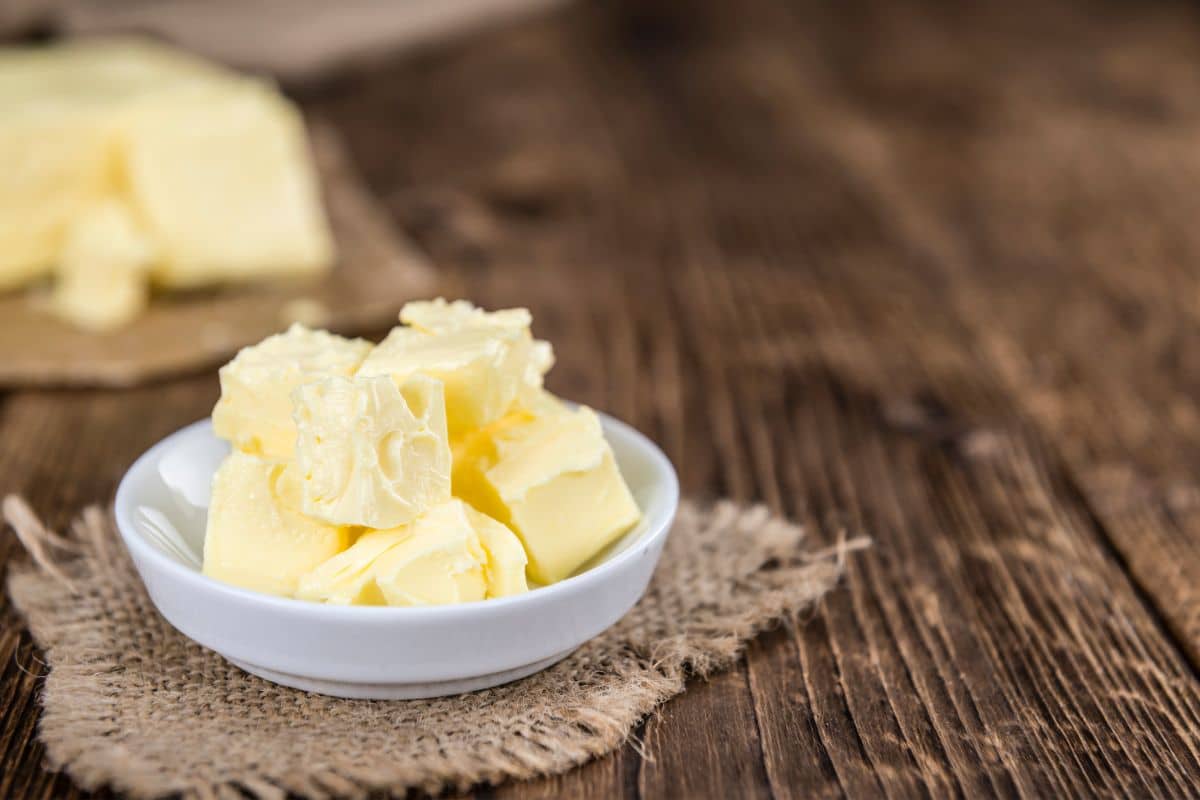
It’s easier to replace canola oil with melted butter to ensure you’re using the right amount. In baking, it’s generally acceptable to replace vegetable oils with melted butter using a 1:1 ratio.
Unsweetened Applesauce
Unsweetened applesauce can be a good substitute for canola oil in baking because it adds a hint of natural sweetness while having a lower fat content.
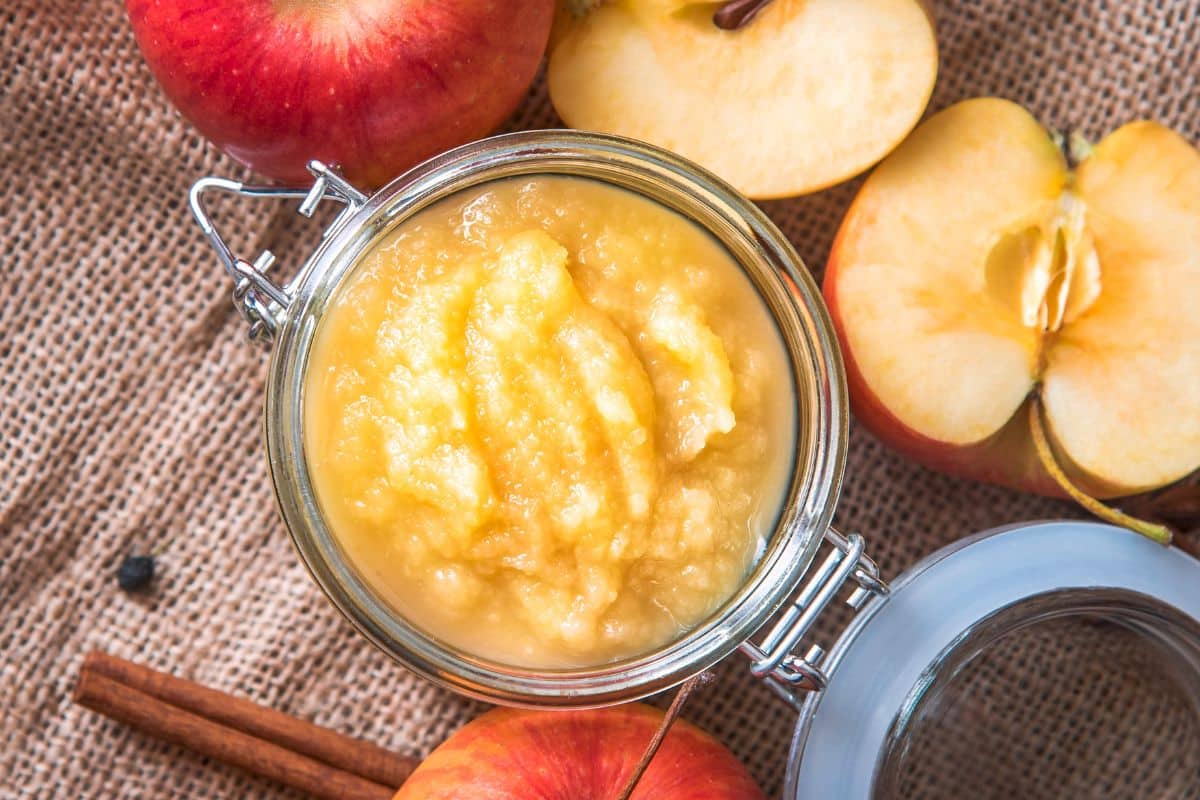
Using applesauce can also improve the texture of baked goods and will help you whip up moist cakes and chewy cookies.
Replacing canola oil with applesauce may require several attempts since baking recipes often require specific measurements of ingredients.
However, a 1:1 substitution ratio is a good place to start. Testing this replacement for canola oil in a smaller batch of baked goods is also a good idea.
Best Vegetable Oil Substitutes for Dressings and Sauces
You’ll want to consider an oil’s flavor first instead of smoke point when replacing canola oil for salad dressings, vinaigrettes, and sauces.
There shouldn’t be drastic changes in the texture, but determine which canola oil alternative has the flavor profile that best matches your salad and other dishes.
Some of the flavorful and healthy canola oil substitutes you can try are:
- Extra virgin olive oil has a distinguishable peppery taste and is best used in vinaigrettes with apple cider or balsamic vinegar.
- Avocado oil has a light buttery flavor that will pair well in dressing recipes with herbs and citrus.
- Flaxseed oil is the best oil substitute for dressings with a garlic-forward flavor because of its mild nutty taste.
FAQs
Canola oil differs from bottled “vegetable oil” because it’s mostly made of the extracted oils from canola seeds, while vegetable oil is a blend that often includes canola, soybean, and corn oils.
Olive oil, specifically extra virgin olive oil, is one of the best choices to cook healthier dishes. But other options like avocado oil, grapeseed oil, and sunflower oil are more versatile cooking options that are also packed with nutritious components.
No. At one point, unverified claims that canola oil is banned in Europe have spread online due to its erucic acid, which naturally occurs in canola and rapeseed.
In 2016, the European Food Safety and Authority said that average exposure to erucic acid is not a safety concern. However, it also warned that high consumption of erucic acid may pose health risks in children ages 10 and below.
Reap the Health and Culinary Benefits of the Best Substitutes for Canola Oil
At first glance, reading “vegetable oil” on the label may give the impression that it’s the healthiest option for your cooking and baking needs.
While plant-derived oils like canola oil are considered safe and appear to have some health benefits, it’s incredibly important to recognize that there are better options out there.
And it’s a great idea to incorporate these canola oil alternatives in your recipes once in a while to serve meals that aren’t just delicious but also more beneficial for everybody’s health.

